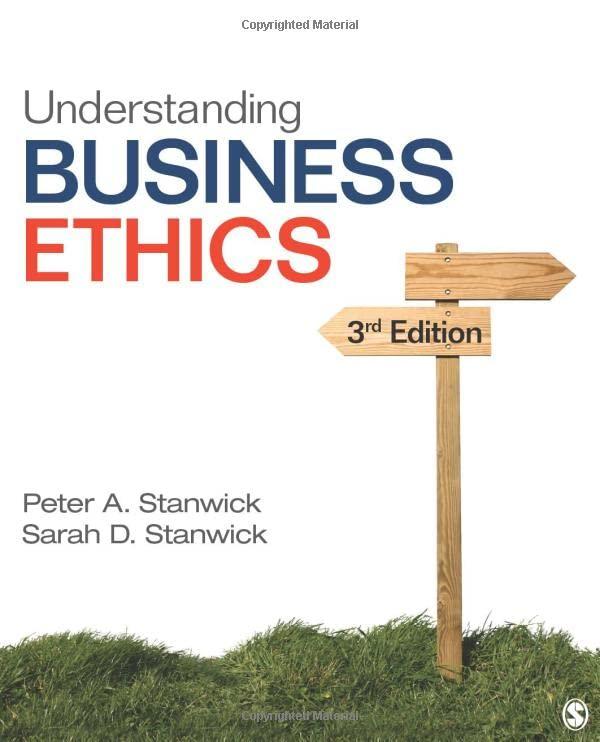On December 3, 1984, 40 tons of toxic methyl isocyanate (MIC) gas, a chemical used in pesticides,
Question:
On December 3, 1984, 40 tons of toxic methyl isocyanate (MIC) gas, a chemical used in pesticides, leaked from a Union Carbide facility in Bhopal, India. The gas killed at least 3,000 people immediately and thousands later. The gas injured thousands more and created a toxic waste dump in the heart of the city where the 11-acre plant was. More than 500,000 people were declared affected by the gas leak and were given an average compensation of $550. The chairman of Union Carbide at the time, Warren Anderson, was arrested while he was in India but posted bail and fled India, never to return. He has retired and lives comfortably on Long Island, New York. India had demanded $3.3 billion in damages, but Union Carbon refused to pay that amount. In 1989, Union Carbide agreed to pay a $470 million settlement for damages that were caused to the local residents. Union Carbide abandoned the facility without cleaning up all the toxic material. Hundreds of tons of toxic waste still are located within the facility and seeping into the nearby soil and water table. Dow Chemical bought Union Carbide in 2001 and claims no responsibility because it did not cause the leak. A Dow Chemical spokesperson stated, “As there was never any ownership, there is no responsibility and no liability—for the Bhopal tragedy or its aftermath.” Dow argued that the property had been turned over to the Madhya Pradesh State government in June 1998. In 2010, eight former senior officials from Union Carbide India were finally convicted of negligence and were sentenced to two years in jail and fined $2,100. One of the defendants died before the sentencing took place. At present, the area around the facility has been settled by scores of poor people who are looking for cheap land on which to build a house. An open pit just beyond the factory walls was used as a storage area for chemical sludge that was a by-product of the manufacturing process. The pit is now used for swimming by the children and as an open toilet.
Questions
1. Why has the U.S. government not extradited former Union Carbide Chairman Warren Anderson to face his charges in India?
2. How would Union Carbide’s reaction to the gas leak be different if the plant was located in the United States?
3. Do you think a payment of $550 is fair for the victims of the disaster? What do you think the payment would be if the disaster occurred in the United States?
4. Compare the U.S. government’s response to the BP Deepwater Horizon disaster with its response to the Union Carbide disaster.
Step by Step Answer:

Understanding Business Ethics
ISBN: 9781506303239
3rd Edition
Authors: Peter A. Stanwick, Sarah D. Stanwick





